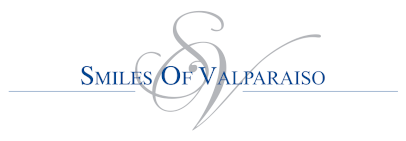Solutions for Teeth Grinding in Porter County
Grinding Teeth at Night Can Be Harmful
Question: “Dr. Arnold, I have been grinding my teeth at night for years. It seems to get worse when I am under a lot of stress. How big a problem is this, and what should I do about it?”
Answer: Bruxism (grinding one’s teeth at night) is a problem for many people. The intensity and duration of grinding generally determine whether or not it damages the teeth.
The most common side effects of nocturnal (night-time) teeth grinding are worn down teeth that are very often sensitive to temperature changes and chewing. The sensitivity is generally caused by the exposure of the inner layers of tooth structure after the enamel is worn through. Grinding the teeth together can also cause premature failure of dental restorations.
Jaw pain, facial muscle soreness, morning headaches, temporomandibular joint (TMJ) problems, and earaches are other common symptoms caused by bruxing. People often become cognizant of this common problem when their spouse is awakened by the loud noise associated with the grinding of teeth.
Psychological factors such as stress, tension, or suppressed anger are usually responsible for bruxing. Poor tooth alignment (malocclusion) can also contribute to bruxism. Many children also brux when their upper and lower teeth don’t fit together comfortably. Fortunately, most kids stop bruxing when their adult teeth start to come in.
Some cases of bruxism are minor and don’t require any treatment. For more severe cases, stress management techniques are encouraged, and night guards are often fabricated to protect the teeth. Depending upon the severity of tooth wear, sometimes crowns or onlays are required to rebuild the affected teeth. In situations where all of the teeth are severely worn, full mouth rehabilitation is sometimes necessary.
Excessive consumption of alcohol, caffeine, and nicotine use can exacerbate bruxism. Limiting these factors and decreasing your stress level can improve this habit and alleviate their symptoms. Seeing a dentist regularly to monitor the signs and symptoms associated with teeth grinding can help you to prevent more serious complications.
Dr. Arnold is a practicing dentist in Valparaiso and Chesterton. He also serves as a clinical instructor with the Hornbrook Group, which teaches contemporary dental concepts to dentists from around the world. For information on this or any other dental topic, you may visit www.SmilesByArnold.com. Dr. Arnold may be reached via e-mail at drarnold@smilesbyarnold.com or by mail at 1830 S. 11th St., Chesterton, IN, 46304.
